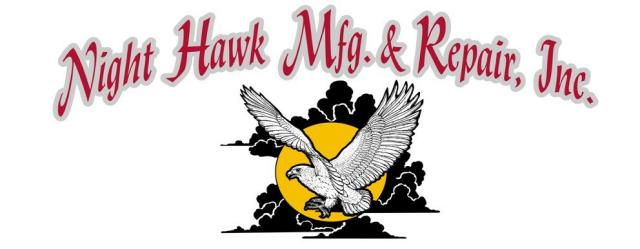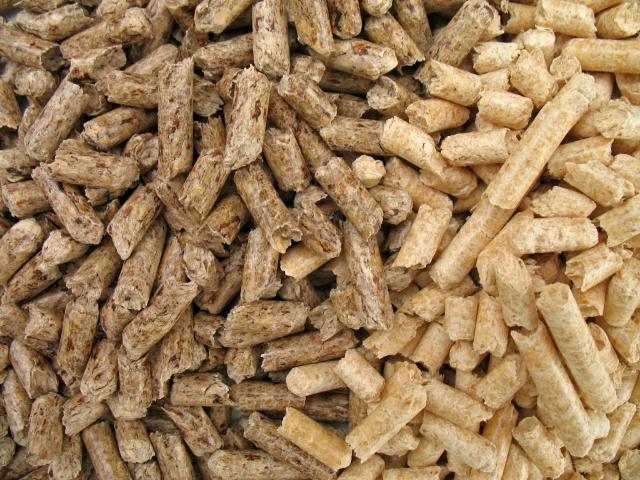FREQUENTLY ASKED QUESTIONS
Q: What is a pellet mill?
A: A pellet mill is a machine that takes raw materials and shapes it into pellet form. Heat builds through friction; releasing starches etc. The product is forced through the holes in the die by the rollers. * Pellets are mainly used for: heating, animal feed or bedding
Q: What kind of materials can be pelletized?
A: Most biomass can be pelletized, if it can be ground down to a granular form, and is the proper moisture content. Sawdust, agricultural waste, yard & garden waste, grasses, paper, manure, compost, etc. can all be made into pellets. Let your imagination run as you see things lying around going to waste!
Q: What are the approx. BTU’s per pound on some common pellete & related fuels?
A: Alfalfa= 7729
Aspen=8501
Shell Corn=8100
Corn Stalks= 7768
DDG (dried distillers grain)=9422
Soybeans 10,230 -
Sugar Beet Pulp Pellets=7345 Hardwood Pellet=8573
Straw-Wheat Pellets= 7375
Wheat (hard red spring)=8063
Q: Have you tried pelletizing any manure? If so, is odor a problem?
A: Yes, we have pelletized cow, horse, and goat manure, compost, and even sewer sludge successfully! Most of the odor is released during the pelletizing process. The pellets themselves still have a very slight odor. However, we haven’t noticed any odor when burning the pellets in our add-on pellet furnace which is in our basement.
Q: What size does my product need to be to run through the pellet mill?
A: Materials typically should be ¼” or less- although some softer materials like paper, hay, straw, etc. can be more like ½” or less.
Q: Is there a formula for making pellets?
A: Pellet making is more of an art when developing your initial formulas. The possibilities are endless as you experiment with different product blends.
Q: What holds the pellets together?
A: Materials such as saw dust, are compressed in the mill, the pressure plus the heat caused by the milling draws out a natural substance called lignin. This makes the pellets hold together. Depending on how dry the material is, additional moisture may need to be added as you make pellets. This may be just a spray of water on the materials. You can also purchase natural binders to add to the product.
Q: Will I be able to just dump straight sawdust in the mill - will it make a pellet?
A: There are many factors that determine this. Assuming, your product is the correct particle size and moisture content (approx. 10-13%) you could possibly dump your material directly in, depending on the machine you had. Our TT series mills in some cases can make wood pellets without a binder, whereas our “green mills” need a binding agent or a blend from 1 to 5%.
Q: What products can I use as a binder?
A: Pellet Bond (modified corn starch); DDG, liquid lignin, molasses, soybeans, soybean meal, alfalfa, veg. oils, shell corn, corn meal, wax, tallow, etc.
Q: Where can I find some of these binders?
A: DDG is available at ethanol plants. Pellet Bond can be purchased through us- shipped with your mill or picked up at our shop @ $30/50#bag. Lignin is a byproduct of the paper industry.
Q: Can I make pellets out of wood chips?
A: Yes, but you will have to grind them down to a granular form to run them through the pellet mill. *Keep in mind the 10-13% moisture level- this is an absolutely critical factor in making pellets. *Green sawdust will not pelletize. Kiln dried sawdust typically needs moisture added.
Q: How can I dry my sawdust or other products?
A: We currently do not have a cost effective and efficient way to dry sawdust that we feel comfortable recommending. We have seen and can get pipe dryers, but have no personal experience with them. We will be posting any new equipment or processes on our website as we progress in other areas.
Q: Can I make pellets all year long?
A: Yes, temperature & humidity are factors that you can learn to compensate for. Cooler weather is a bit more challenging since friction based heat inside the mill is an important part of the pellet making process. High humidity can make pellet production more difficult as well. Raw material will absorb moisture out of the air. Working indoors is usually beneficial as factors remain more constant.
Q: What size pellets can I make?
A: It really depends on the machine. Std. is 6mm dia. but the overall ranges on the mills we currently handle, range from 2mm to 30mm. Most mills have an adjustable knife to vary pellet lengths.
Q: Do the pellets need to be cooled & dried?
A: Yes, the cooling & drying process is another critical step in the pellet making process. The pellets are hot and moist coming out of the mill. (approx. 150 deg. F). The cooling process should be some what gradual– using warm air on warm pellets & cooler air as they cool. This allows the pellets to cool & “set” properly.
Q: What moisture content do I want my finished pellet?
A: This varies with type of biomass used. Your pellets will burn fine between 5-10%. Typically, the lower end of the spectrum will burn the most effectively in most stoves.
Q: What is the density of pellets that your mills product?
A: It depends on the machine, and on the product used. Typically we figure around 40# per cubic ft.
.
Q: What is the lifespan of mold & die sets?
A: This varies with the abrasiveness of the material being pelletized as well as the brand of the mill. The “green” mill factory states approx. 200 hrs of operation. However, with proper maintenance & use of lubricating binders this can increase.
Q: What is the feed rate (or production capacity) of your pellet mills?
A: The feed rate varies widely with the materials being used. Products that have higher bulk density typically have a higher feed rate; however, the abrasiveness level lowers feed rates. Binders can increase the throughput of the machine by reducing the abrasion. Rates vary from website to website on machines that seem identical. We have tried to put an average feed rate (capacity) on our information, based on our own experience making high quality pellets.
Q: Can you recommend a stove that efficiently burns most biomass pellets– even with high moisture & ash content?
A: Yes, we also sell Seraph bio fuel burners which we highly recommend for burning almost all biomass pellets.
Q: Do you have pellet mills on hand in your shop?
A: Yes, we have several different models that we do demonstrations on ranging from 200 to 770 lbs per hour. We also have several models available for sale at any given time. If we are out of stock, we are only a matter of hours from our warehouses.
Q: Can I purchase a mill without a motor?
A: Yes, you can purchase just the “mill head” in many models- we have put together an information sheet with details and pricing. We do not make recommendations on how to adapt these heads to your own power source. They are considered a replacement part for a complete pellet mill.
Q: Why should I buy equipment from Night Hawk Mfg?
A: We have a proven history of service after the sale in material handling equipment. Most customers would agree that we go the extra mile both before and after the sale. We are members in good standing of the Better Business Bureau with no complaints. We hold regularly scheduled demonstrations at our shop, as well as by individual appointments.* Our demos are interactive, showing you basic concepts based on our own tests & trials; as well as allowing you to bring your own products for us to experiment with. We offer help in figuring out recipes & procedures which vary with each material. We also offer to do experimentation with your product via USPS; and will ship sample pellets back to you for a reasonable fee. These fees are refundable with equipment purchases within 30 days. We have a wide variety of pellet mills in stock– in addition to nearby availability of mills and other equipment at the warehouses. We strive to have most replacement parts available for same or next day shipping on the equipment we sell. Many other suppliers are not willing or able to provide this service and International Air Freight charges are far more common. We do not sell replacement parts to competitor’s customers to help ensure adequate supply on hand for our customers. We also offer on site equipment repairs– with flexible hours to serve you better, and minimize down time.* We freely give our home & cell phone numbers to customers to try to provide prompt help during daytime & evening hours whenever we’re available. We typically are available Mon- Sat 8am to 8pm (Central Time Zone) or leave a message & we’ll get back to you..
*NOTE: Shop Hours are by Appointment Only *
 | ||||||



